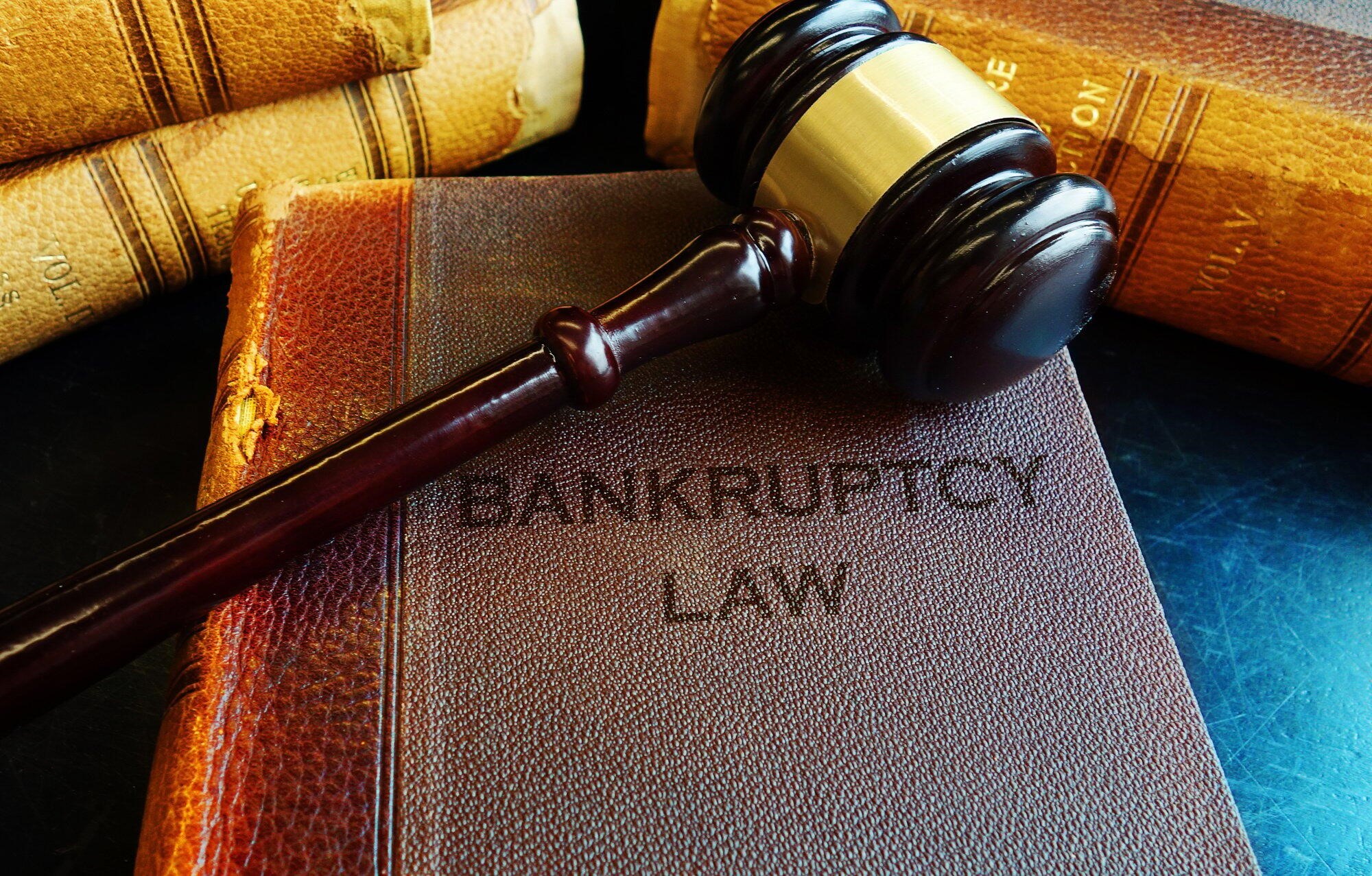Law
What Private Landlords Need to Know in Understanding Tenants’ Rights

As a private landlord, it is important to understand the rights of your tenants. This not only ensures that you are compliant with the law but also helps you maintain a healthy and positive relationship with your tenants. In this article, we will discuss some key aspects of tenants’ rights that every private landlord should know.
Understanding the Lease Agreement
The lease agreement is a legally binding contract between you and your tenant. It outlines the terms and conditions of the tenancy including:
- rent
- length of tenancy
- security deposit
- maintenance responsibilities
- other important details
It is essential for privately owned apartments for rent to clearly understand the lease agreement before signing it with a tenant. This includes being aware of any local laws or regulations that may impact the terms of the lease.
Security Deposits
Some houses for rent by owners require tenants to pay a security deposit before moving in. This deposit serves as a form of protection for landlords in case the tenant causes any damages or fails to pay rent.
However, it is important to know the laws in your state regarding security deposits. In some states, there are limits on how much a landlord can charge for a security deposit and specific rules on how it should be held. Generally, landlords are required to return the security deposit within a certain timeframe after the tenant moves out.
Maintenance Responsibilities
As a private landlord, it is your responsibility to ensure that the property is maintained in a safe and habitable condition. This includes making necessary repairs and addressing any health or safety hazards. It is important to respond promptly to maintenance requests from tenants and keep a record of all repair work done on the property.
However, tenants also have certain responsibilities when it comes to maintenance. It is important to outline these responsibilities in the lease agreement.
Privacy Rights
Tenants have a right to privacy in their rental units. This means that as a landlord, you cannot enter the property without giving proper notice except in cases of emergency. The specific amount of notice required may vary depending on state laws, but it is generally 24-48 hours.
It is important to respect your tenants’ privacy and only enter the property for legitimate reasons such as repairs or inspections. Violating a tenant’s privacy rights can result in legal consequences for landlords.
Eviction Process
In case of a dispute or violation of the lease agreement, private landlords may need to evict a tenant. However, it is important to follow the proper legal process for eviction and not take matters into your own hands.
The eviction process may vary depending on state laws, but it typically involves giving written notice to the tenant, filing an eviction lawsuit in court, and attending a hearing.
It is important to have solid evidence of the reasons for eviction and make sure all steps are followed according to the law. If all of this is followed then the phrase “my landlord is taking me to court for unpaid rent” is justified.
Be a Good Private Landlord Today
In conclusion, understanding tenants’ rights is crucial for private landlords to maintain a positive relationship with tenants and comply with the law. It is important to clearly outline these rights in the lease agreement and abide by them throughout the tenancy.
Being a responsible and knowledgeable landlord will not only benefit your tenants but also protect your investment in the long run. So, take the time to understand and respect their rights as tenants.
If you want to read more articles, visit our blog.

Law
Understanding the Role of a Chapter 11 Lawyer in Business Bankruptcy

Navigating the stormy waters of business bankruptcy can be daunting for any entrepreneur or corporate entity. The thought of filing for Chapter 11 bankruptcy, which allows businesses to reorganize and stay afloat, can be fraught with confusion and concern.
This is where the critical expertise of a Chapter 11 lawyer can be the lifebuoy your business needs to weather the financial turbulence.
Read on to learn more.
The Complex Landscape of Business Bankruptcy
Business bankruptcy law is vast, intricate, and peppered with frequent updates and case precedents. This often most crucial step is seeking a legal professional to understand the current statutes. It understands how to apply them in your business’s unique situation.
A thorough understanding of the nuances and expectations of the court system is pivotal. A Chapter 11 lawyer is a legal advisor and a strategic partner. It guides you through the complex web of negotiations with creditors.
Creating and approving a reorganization plan and ensuring full compliance with the law every step of the way.
Chapter 11 Lawyer: More Than Legal Guidance
The role of a Chapter 11 bankruptcy lawyer goes beyond standard legal consultation. They often act as business consultants, financial advisors, and even therapists in a charged period for the business owner. They help in:
Devising a Comprehensive Reorganization Plan
This is the skeleton of your rehabilitation strategy. A bankruptcy lawyer will work with you to draft a plan that is not only viable and lawful but also will likely win the approval of your creditors and the court.
Negotiations with Creditors
Skilled negotiation is a vital aspect of bankruptcy proceedings. A lawyer will represent your best interests and work to secure favorable terms from your creditors.
Guidance through Complex Legalities
The legal framework of bankruptcy can be labyrinthine. A lawyer’s expertise can help you discern workable and advisable actions.
Minimizing Personal Liability
Personal assets may sometimes be at stake. A Chapter 11 lawyer advocates for protecting your finances by taking all available measures.
Selecting the Right Chapter 11 Lawyer for Your Business
The differences between a business lawyer and a Chapter 11 lawyer can be subtle but have significant implications. When selecting legal representation for your Chapter 11 filing, it’s essential to consider several factors:
Specialized Experience and Success Record
Look for lawyers who have a track record of successful Chapter 11 cases. Experience is vital, as each bankruptcy is unique and has faced a variety of scenarios.
Communication and Comfort
Bankruptcy cases can be lengthy, and the relationship with your lawyer will be close. Comfort with open communication should be a priority. This should clearly understand how and when you will be updated on your case’s progress.
Fee Structure
Understand how your lawyer charges for their services. Legal fees are a significant consideration for any business going through bankruptcy. It is a clear fee structure that can avoid surprises.
The Road to Chapter 11 Filing
The filing process is critical and will set the tone for the rest of your bankruptcy case. The initial stages involve:
Understanding Your Business’ Financial Position
Conduct a thorough analysis of your business’s financial health. This will inform the reorganization plan and serve as a benchmark for measuring progress.
Immediate Actions Upon Filing
The first days of a Chapter 11 filing are crucial. Immediate actions include:
- creating a creditor matrix
- drafting initial motions
This will begin the formal process and set in motion the protection mechanisms offered by Chapter 11.
The Automatic Stay
An automatic stay is enacted upon filing, halting all debt collection efforts. This provides immediate relief and time to focus on the reorganization plan.
The Reorganization Plan
The reorganization plan is the heart and soul of Chapter 11. It’s an intricate document that must meet several criteria, including:
- feasibility
- good faith
In preparing the plan with your lawyer, you will:
Identify Creditors’ Classes
Different creditors may be assigned different classes and treated under the reorganization plan. The plan must consider and justify this.
Negotiate Terms
Intensive negotiation with creditors before the plan is presented to the court will help ensure a higher chance of approval.
Draft Disclosure Statements
The reorganization plan must include a comprehensive disclosure statement outlining the business’s financial state, past actions, and future intentions in detail.
Seek Plan Approval
Presenting the reorganization plan to creditors and the court for approval is critical. A lawyer will ensure that your case is robust and that all necessary evidence and documentation are provided to support it.
The Confirmation Hearing and Beyond
The confirmation hearing is where the rubber meets the road. This is where the reorganization plan is tested before the court and your creditors. What follows are the implementation and monitoring of the reorganization plan.
The DIP Financing Conundrum
Debtor-in-possession financing is often used within Chapter 11 to maintain your business’s operations. A Chapter 11 lawyer will help you structure and secure the best financing options.
The Court-Appointed Trustee
Sometimes, a trustee may be appointed to oversee the Chapter 11 proceedings. Your lawyer will guide you through the trustee’s role and ensure cooperation to ease the most favorable outcome for your business.
Post-Bankruptcy Life
Emerging from Chapter 11 is a legal victory and a strategic opportunity. It is crucial to learn from the process and adapt your business model. Your Chapter 11 lawyer can continue to offer valuable counsel and support as you transition to a post-bankruptcy future.
Rebuilding Trust
Rebuilding trust with stakeholders, customers, and creditors is a delicate yet critical task. A lawyer’s guidance can be instrumental in drafting communication strategies. Ensuring compliance with any lingering bankruptcy-related requirements.
Looking to the Future
The end of the Chapter 11 process is also a new beginning. Planning for a stable future requires foresight, innovation, and, often, the continuation of the strategic partnership with your Chapter 11 lawyer.
Navigating Business Debt Consolidation Post-Chapter 11
After the rigorous process of Chapter 11 bankruptcy, businesses may still manage substantial debt loads. In this context, business debt consolidation becomes a strategic maneuver to streamline finances. By combining multiple debts into a single, more manageable loan, companies can often secure lower interest rates and reduce monthly payments.
Understanding the Role of a Chapter 11 Lawyer
The role of a Chapter 11 lawyer in business bankruptcy is multi-faceted and indispensable. They provide expertise, guidance, and a steady hand during one of the most challenging periods for any business. By selecting the right legal representation, understanding the process, and working with your lawyer, you can turn what seems like a doomsday scenario into an opportunity for rebirth and prosperity.
For businesses and entrepreneurs facing bankruptcy, seeking a seasoned Chapter 11 lawyer is not just a luxury.
For more helpful tips, check out the rest of our site today!
Law
5 Things You Need to Know about Inheritance Law

In 2022, over 60% of American households said they’ve gotten, will get, or intend to give inheritances, so you’ll likely receive something in your lifetime.
In some cases, inheritance is as straightforward as cash passing from one person to another. But in others, you can inherit a house, which is a more complicated matter.
If you’ve inherited property from a loved one, or will someday, then you’ll want to know the relevant laws surrounding it. Here are five things you should be aware of when it comes to inheritance law.
1.Intestacy Laws
In some circumstances, a person may die without a valid will; this means they’ve died intestate.
Each state has its own intestacy laws, which determine how the deceased’s estate will be distributed among their heirs. These laws vary from one jurisdiction to another, so it’s best to check with yours for accurate information.
2.Estate Taxes
Unfortunately, when you inherit a house, you don’t get it for free. There are estate taxes, which are imposed on the transfer of property upon death.
The good news is that not all estates are subject to estate taxes. In addition, the threshold for such taxes varies by jurisdiction. You may be lucky and live somewhere where your property inheritance won’t be taxed since its worth isn’t high enough.
3.Executor/Administrator
When you inherit property, you’ll have to deal with an executor. This is the person named in the will to carry out the instructions specified in the will and manage the estate during the probate process.
If the deceased hasn’t left a will or hasn’t named an executor, the court appoints an administrator to fulfill these responsibilities.
4.Spousal and Children’s Inheritance Rights
If you’re married and/or have kids, then you should be aware that spouses and children typically have certain inheritance rights. They may include the right to a portion of the deceased spouse’s/parent’s estate, regardless of whether there’s a will. This also applies to adopted kids and stepchildren.
Again, the specific rights will depend on state law. In addition, they’ll depend on whether the estate is considered community property or separate property.
5.Probate Process
Probate is the legal process where the deceased’s will goes through validation, and their estate is administered. It involves identifying and inventorying assets, paying debts and taxes, and distributing remaining assets to heirs and beneficiaries.
If you want to sell a home you’ve inherited, and it’s subject to probate, you’ll need court approval first. Should there be property deed issues, there are still companies that’ll take the property off your hands for a good price.
Know These Points of Inheritance Law
Knowing crucial information surrounding inheritance law can save you lots of legal trouble in the future. Considering that’ll be going through an emotional time, lessening this burden will be much appreciated.
Of course, you should still seek legal assistance, as inheritance laws can be complex. With an experienced estate planning attorney on your side, you’ll avoid drawn-out conflict, should other family members contest you on your inheritance rights.
Do you have other real estate questions? Then browse the rest of our blog for the answers.
Law
Olaplex Lawsuit: Unraveling the Complex Legal Battle

In the dynamic world of haircare, Olaplex has been a revolutionary brand, promising to repair and strengthen hair. However, recent legal developments have given rise to an Olaplex lawsuit that has left many consumers perplexed. In this article, we delve into the intricacies of the legal battle surrounding Olaplex.
Understanding Olaplex
What Sets Olaplex Apart?
Olaplex gained fame for its patented formula designed to protect and repair hair during chemical treatments. The product claimed to prevent hair damage, making it a go-to for hairstylists and enthusiasts alike.
The Allegations
Unraveling the Olaplex Lawsuit
The Olaplex lawsuit centers around allegations of false advertising, with plaintiffs claiming that the product didn’t deliver the promised results. We explore the specifics of the legal claims, shedding light on the ongoing courtroom drama.
Burstiness in the Legal Arena
Legal Jargon Demystified
Navigating a lawsuit involves wading through a sea of legal terms. We break down the complexities, ensuring you grasp the nuances of the Olaplex legal battle without feeling overwhelmed.
Courtroom Dynamics
Behind the Scenes
Understanding the players in the Olaplex Lawsuit – the legal teams, the judge, and the plaintiffs – provides insight into the burstiness of the legal arena. We take you behind the scenes, offering a glimpse into the strategies employed.
Consumer Sentiments
Social Media Outcry
As news of the Olaplex Lawsuit spread, social media became a battleground for disgruntled consumers. We explore the role of social media in amplifying the perplexity surrounding the case and shaping public opinion.
Consumer Experiences
Real Stories
To provide context, we share real-life experiences of individuals who used Olaplex and became entangled in the legal proceedings. These personal narratives add a human touch to the complex legal saga.
The Impact on the Beauty Industry
Industry Reflection
The Olaplex Lawsuit is not just about one product; it’s a reflection of the beauty industry’s standards and practices. We analyze the potential repercussions and how it might reshape the industry landscape.
Conclusion
In conclusion, the Olaplex Lawsuit has added a layer of complexity to the narrative of this once-revered haircare brand. As the legal battle unfolds, the beauty community awaits the resolution with bated breath.
FAQs
Is Olaplex still available for purchase amidst the lawsuit?
Yes, Olaplex products remain available for purchase despite the ongoing legal proceedings.
How can consumers stay informed about the progress of the Olaplex Lawsuit?
Regularly check official Olaplex statements and reliable news sources for updates on the lawsuit.
What are the potential outcomes of the Olaplex’Lawsuit for consumers?
Depending on the court’s decision, consumers may be eligible for refunds or compensation if the allegations are proven true.
Are there any alternative products recommended while the lawsuit is ongoing?
While Olaplex is under scrutiny, consumers may explore alternative haircare products recommended by professionals.
How can consumers contribute to the discourse surrounding the Olaplex’Lawsuit?
Engage in informed discussions on social media, sharing experiences and staying updated on legal developments.
-

 Fashion2 years ago
Fashion2 years agoExploring Purenudism: Embracing Body Positivity and Freedom
-

 Shops1 year ago
Shops1 year agoStaples Store Hours: What Time Does Staples Open And Close?
-

 Shops2 years ago
Shops2 years agoWalmart Vision Center Hours
-

 Shops1 year ago
Shops1 year agoWalgreen Pharmacy Hours: What Time Does It Open & Close?
-

 Shops1 year ago
Shops1 year agoPublix Pharmacy Hours and Locations
-

 Entertainment2 years ago
Entertainment2 years agoThothub.lol: The Digital Realm of Entertainment
-

 Business2 years ago
Business2 years agoDesigner Clothing: Making a Statement
-

 Shops1 year ago
Shops1 year agoWalmart Deli Open & Close Hours